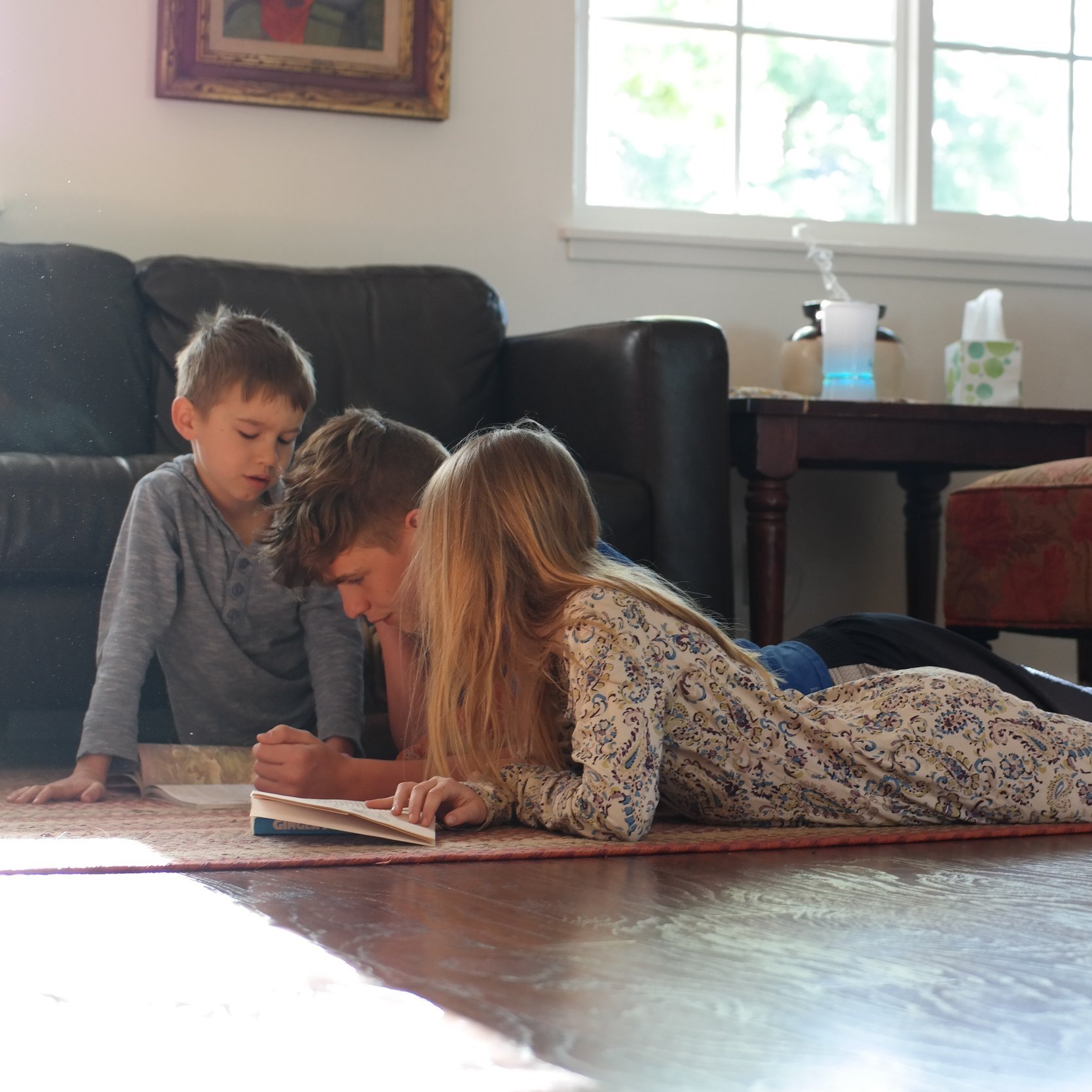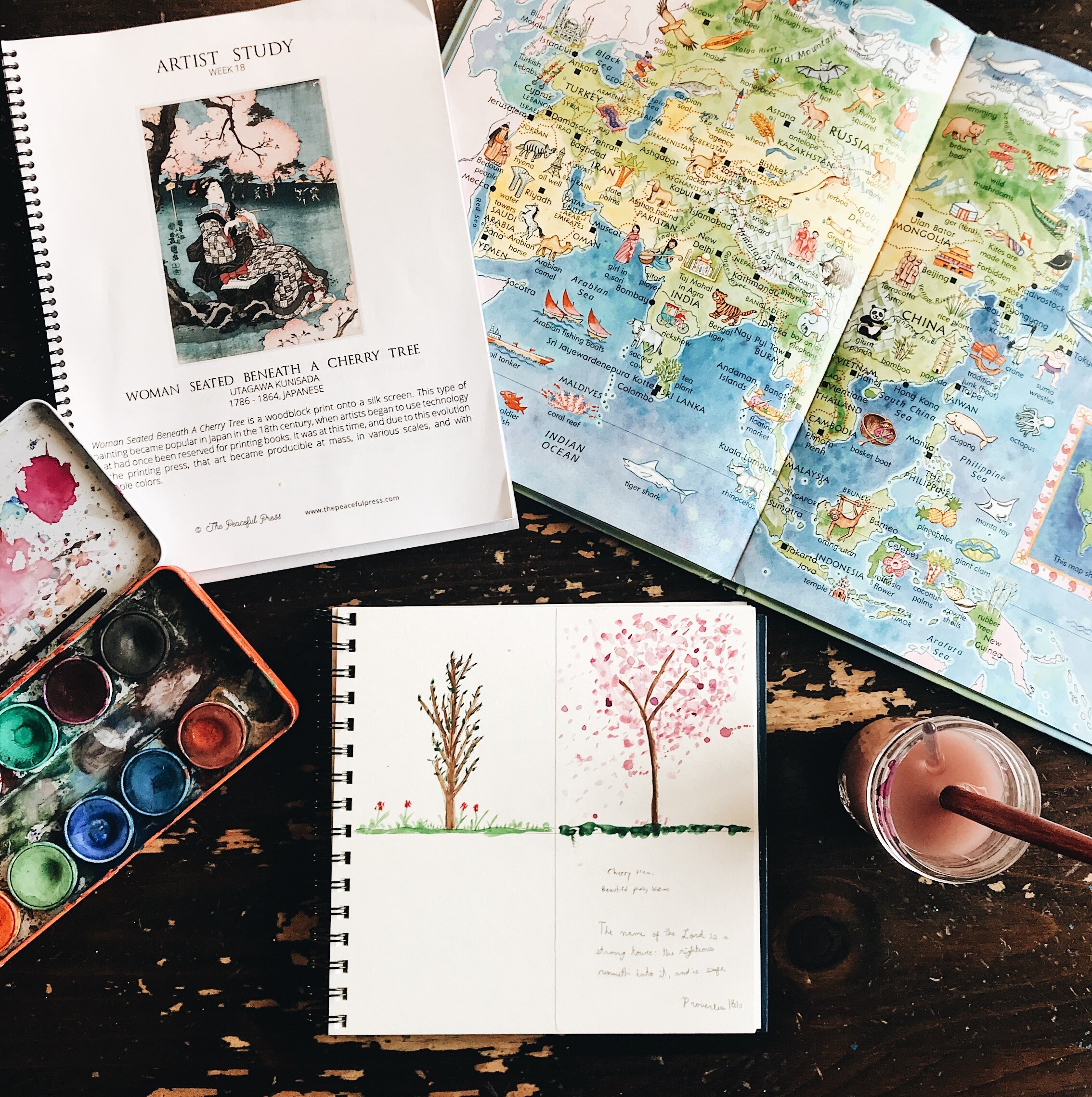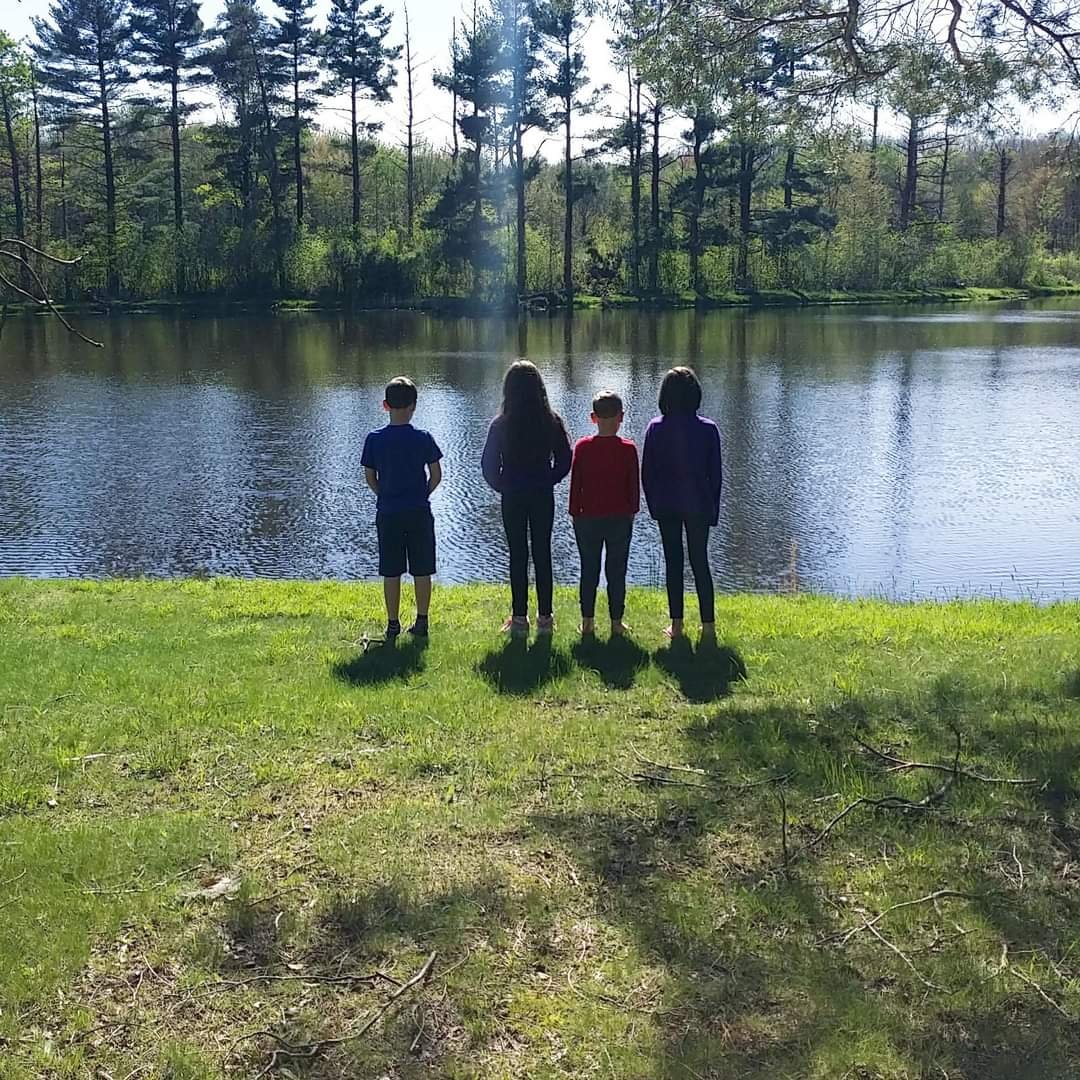Simplify to Avoid Homeschool Burnout
Many families are wondering how they can homeschool while caring for toddlers. They might even be feeling a little burnt out right about now with the stress of managing multi aged learning.
With the Peaceful Press we create a more peaceful learning flow by simplifying school in the early years. We focus on a few high impact activities and do as much group learning as possible.
Read Aloud- When you read aloud every day, your children are hearing big concepts and vocabulary, understanding how to put language together, and shaping a world view. Toddlers can be eating a snack in the high chair while students color or copy sentences in a notebook. Read this blog post for a list of our favorite audio books.
Narration- Take a few minutes after you read a section to ask your children what you read, and give them time to share, but don't stress if it doesn't seem like a lot. Observe your child and you will probably notice them playing the story, asking you questions about it, or in other ways, narrating what they learned. Check out this blog post on how to teach narration.
Memorization- Sing the A-Z verses from The Good Gospel, read and recite poetry, and spend a few minutes each day reciting simple math facts. Even skip counting at bedtime can be a simple way to add in some memorization.
History and Science Notebook- Let your children add a picture or a few notes about what you read into a notebook or draw pictures on timeline cards so they can begin to make connections to the stories you are reading. Here is a blog post on how to homeschool with notebooks.
Habit Training- Work on simple tasks every day like making the bed, putting away clothes, and brushing teeth. Habit training helps children develop important motor skills for seat work, and it is foundational for a peaceful homeschool. If your children can't follow simple directions and listen to instruction from adults it will be difficult to homeschool them. (Our Chore and Routine Pack can help)
Arts and Crafts- Provide simple materials so that your children can develop their artistic ability and teach them how to clean up after themselves.
Practical Skills- Involve young children in the work of the home. They learn important sequencing skills through helping bake, clean, and care for their belongings, and it gives them a sense of confidence as they develop these skills.
Outside Time- The benefits to time outside has been well documented in the work done by researchers such as Richard Louv and it's an integral part of a Charlotte Mason education. Give your children at least an hour each day of free play outdoors.
Connect- Connect with them through eye contact, hugs, and encouragement. If your day is too busy to give each child simple affirmations of love, it will be difficult to get your child to respond to your instructions.
Practical Math- Young children are often not ready for abstract math, so instead of getting an in depth math resource for each grade level, try grouping students together by close grade so you have fewer teachers guides to lead from, (for example a 6 year old and 8 year old could do first or second grade math together) and use a hands on resource such as Right Start Math.
Most homeschool meltdowns come from trying to manage too many subjects with too many grades, so don't be afraid to simplify your subjects, group your grades, and stick to basics until age ten.










